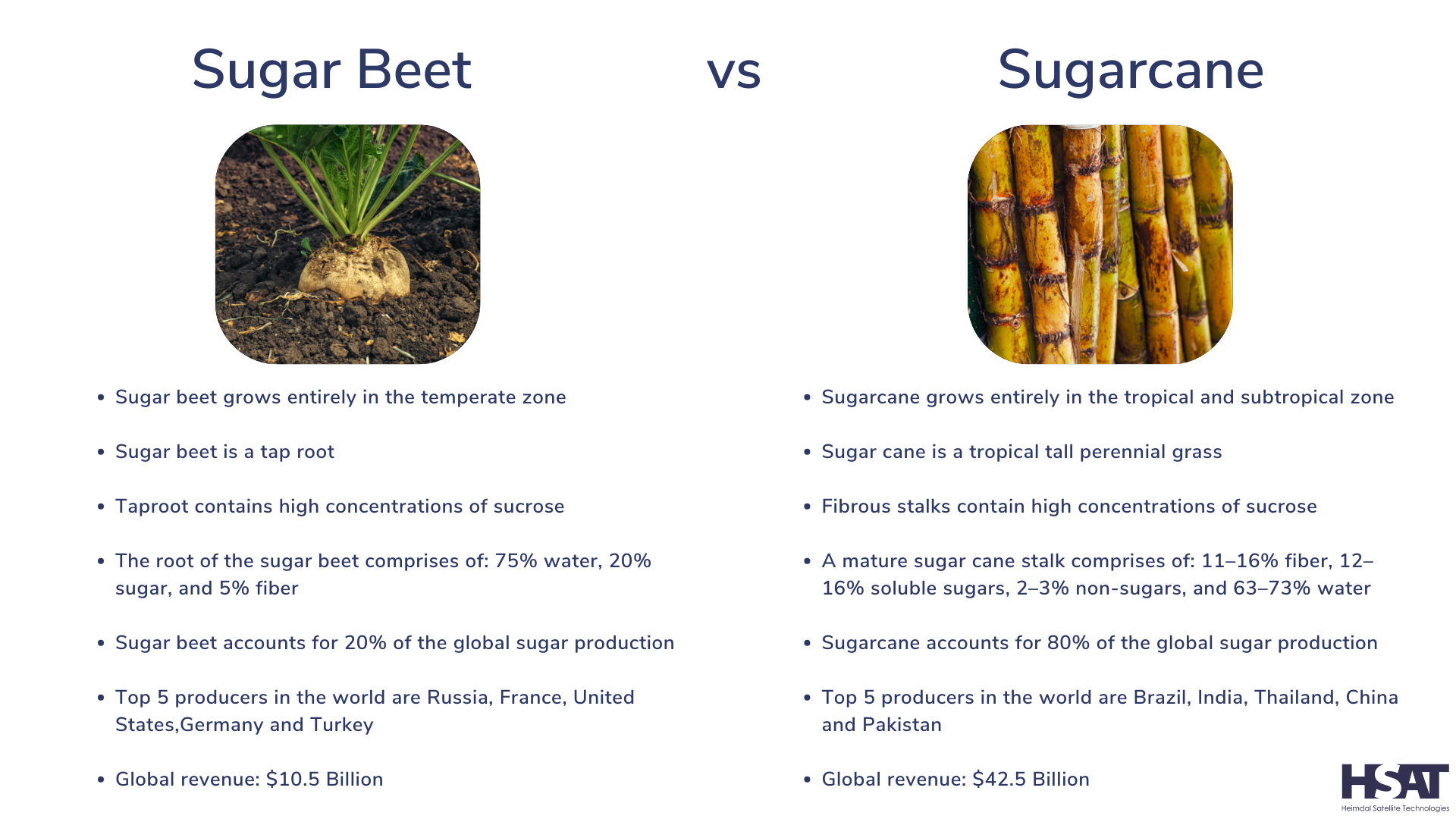Beet Sugar vs Cane: Which One Offers Better Environmental Impact?
Beet Sugar vs Cane: Which One Offers Better Environmental Impact?
Blog Article
The Fantastic Argument: Beetroot Sugar Vs Walking Cane and Their Effect on Health
The continuous debate surrounding beetroot sugar and walking stick sugar elevates vital inquiries concerning their respective health and wellness influences and more comprehensive effects for consumer selections. This discussion welcomes us to consider not just the sweetness we pick, yet the far-ranging impacts of those options on our wellness and the earth.
Overview of Sugar Sources
Sugar, a commonly taken in sugar, primarily originates from two main resources: sugar beets and sugar walking cane. Sugar walking cane thrives in tropical and subtropical environments, with major manufacturers including Brazil, India, and China.
Alternatively, sugar beetroots are predominantly expanded in pleasant regions, with substantial manufacturing in countries such as the USA, France, and Germany. The beetroots are gathered from the ground, cut, and subjected to a process that transforms the removed juice into granulated sugar. While both sugar sources ultimately yield sucrose, their agricultural practices, refining methods, and geographical circulations differ significantly.
These distinctions can affect not just the ecological influence of sugar production however likewise the financial facets of sugar pricing and trade. Understanding the origins of these sugar is important for policymakers and customers alike, as it lays the structure for educated conversations about their health and wellness ramifications and sustainability.
Nutritional Comparison
When taking a look at the dietary accounts of beetroot sugar and cane sugar, both sources share a similar composition as they mainly are composed of sucrose. Sucrose is a disaccharide, made up of glucose and fructose, and is accountable for the sweetness connected with both sugars. The refining procedures for both beetroot and walking cane sugar return items that are mostly pure sucrose, with marginal traces of vitamins, minerals, or various other nutrients.
In regards to calorie web content, both beetroot and walking cane sugars give about 4 calories per gram. Neither sort of sugar supplies significant dietary advantages beyond energy arrangement, as they lack vital vitamins or minerals. However, the existence of micronutrient, such as potassium, magnesium, and calcium, can differ somewhat between both, mainly due to the agricultural practices and soil conditions in which they are grown.
In addition, the glycemic index values of beet sugar and cane sugar are similar, indicating comparable impacts on blood sugar levels. On the whole, from a nutritional perspective, beetroot and cane sugars are functionally comparable, adding mostly to calorie consumption without providing substantial health advantages over each other.
Health And Wellness Implications
The health and wellness implications of consuming beetroot sugar and walking cane sugar warrant careful factor to consider, particularly offered the climbing prevalence of sugar-related health and wellness concerns. Both types of sugar contribute comparable calorie values and can cause enhanced threats of obesity, type 2 diabetes, and cardio conditions when eaten in extra. The body sugars both metabolizes right into sugar, which can trigger spikes in blood sugar level levels, bring about insulin resistance with time.
While there is ongoing dispute pertaining to the glycemic index of these sugars, research studies recommend that both can negatively influence metabolic health and wellness if eaten in huge quantities. beet sugar vs cane. Furthermore, the possible presence of contaminants in beetroot sugar, such as chemicals from standard farming techniques, increases further health issues. Alternatively, walking cane sugar, especially when minimally refined, might use a somewhat more desirable account as a result of its all-natural state
In addition, the usage of sugarcoated, despite the resource, is linked to adverse health results, including dental concerns and fatty liver disease. Consequently, small amounts is crucial, and people need to be mindful of their total sugar consumption from all resources, inevitably prioritizing whole foods over sugarcoated for ideal health and wellness outcomes.
Ecological Effect
Comprehending the health and wellness effects of beet and cane sugar additionally results in an evaluation of their ecological impact, which can considerably influence agricultural sustainability and eco-friendly balance. Both sugar resources have unique environmental impacts, shaped by their farming methods and geographical needs.

In comparison, beet sugar is generally expanded in temperate climates and frequently involves diverse crop turnings. This technique can improve soil health and wellness and lower reliance on chemical inputs. Intensive beet farming can likewise lead to nutrition depletion and insect stress if not taken care of sustainably.
Both sugar kinds present challenges and possibilities for ecological stewardship. Promoting lasting farming methods and responsible sourcing can reduce their effects, making certain that sugar production lines up with environmental conservation and lasting food security.
Customer Preferences
Amidst growing awareness of health and environmental problems, consumer choices for sugar kinds are increasingly affected by perceptions of health advantages, sustainability, and moral sourcing. Beet sugar and cane sugar each existing distinct characteristics that appeal to various customer demographics.
Health-conscious customers typically scrutinize the dietary accounts of these sugars, seeking alternatives perceived as much less refined or even more natural. Walking cane sugar, typically related to helpful hints as the traditional sweetener, is often favored for its regarded purity and simpleness. On the other hand, beetroot sugar, which is often originated from genetically customized crops, deals with uncertainty amongst those concerned concerning GMOs.
Sustainability is another significant element affecting consumer selections. As awareness of farming methods expands, many customers choose for items that align with eco friendly farming techniques. Walking cane sugar production, especially when sourced from lasting ranches, can attract eco-conscious buyers.
Honest sourcing plays an important role also, with customers progressively preferring items that sustain reasonable labor methods. Qualifications such as Fair Profession can boost the attractiveness of cane sugar out there. Inevitably, customer preferences are formed by a complex interplay of health and wellness, ecological, and ethical considerations, driving demand for both beetroot and walking cane sugars in varied markets.
Conclusion
In conclusion, the argument in between beetroot sugar and walking cane sugar incorporates various factors, including dietary accounts, wellness effects, and ecological consequences. beet sugar vs cane. While both sugars primarily contain sucrose and show comparable calorie material, issues regarding chemical usage in beetroot sugar and the environmental effect of cane sugar monoculture warrant mindful factor to consider. As consumers increasingly focus on sustainability and wellness, educated options relating to sugar intake end up being important in advertising general health and environmental stewardship

Report this page